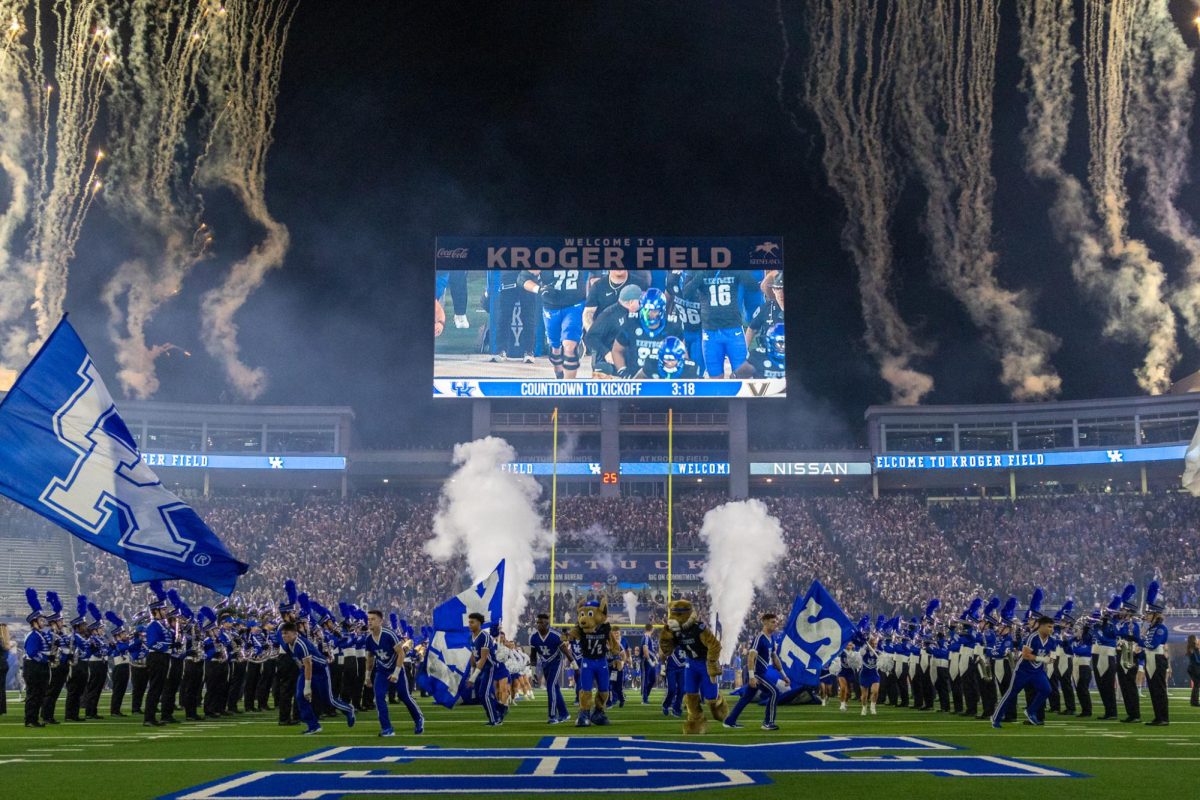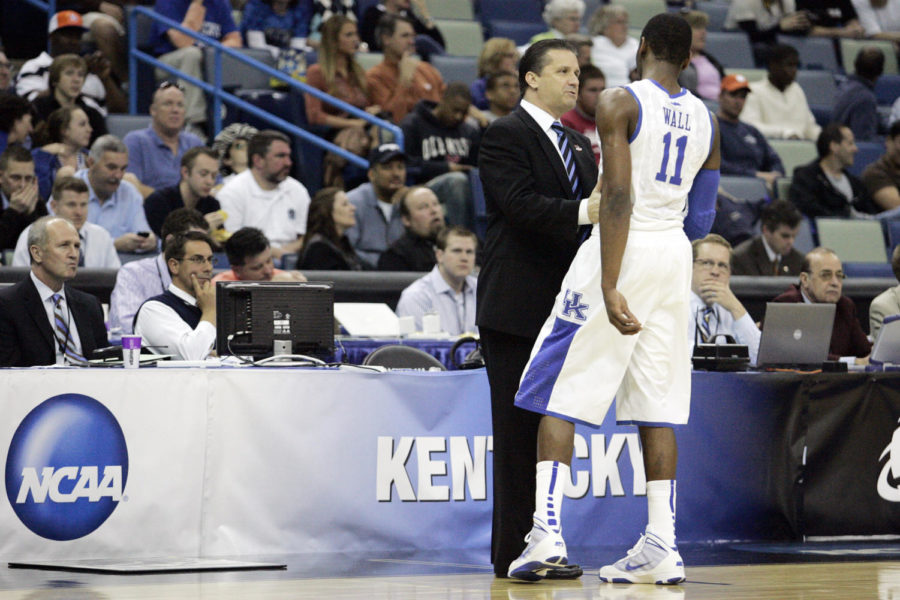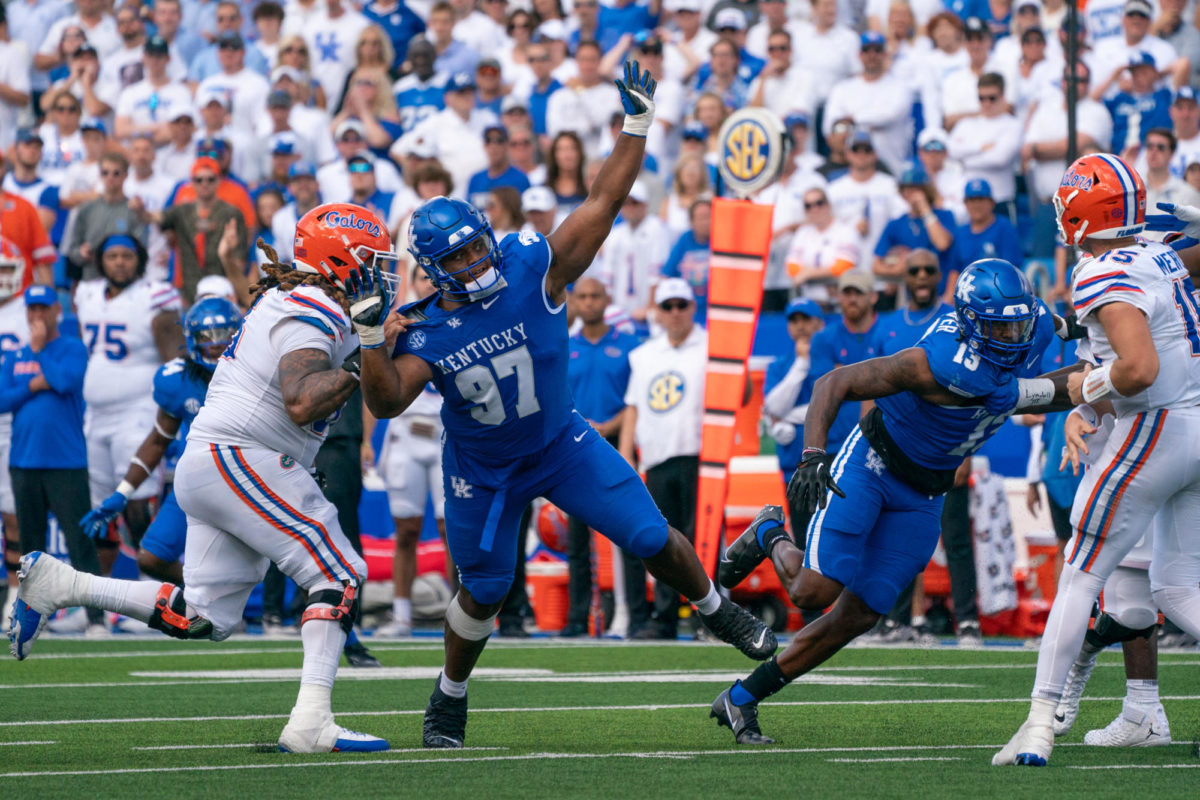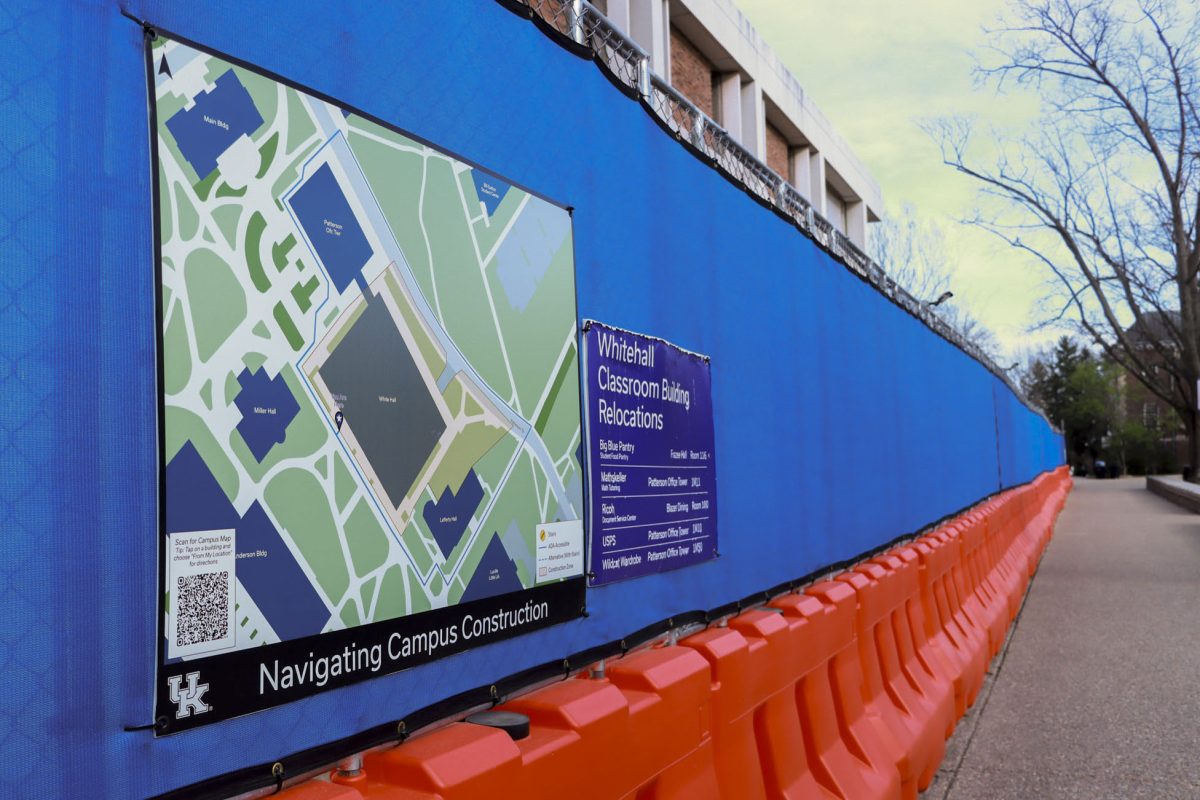Racist comments follow demonstrations
December 12, 2014
By Anne Halliwell
The Wednesday night die-in protest in the W. T. Young library elicited racist comments from anonymous Yik Yak users.
Three UK students, Kelly Moore, Tyesha Marshall and Rae’Esha Shabazz, organized the protests on Tuesday and Wednesday.
The second die-in protest, which followed one at the Patterson Office Tower on Tuesday, began at 9 p.m. and lasted about 30 minutes.
Students watching leaned over the library ledges to film and take pictures, posted racist comments to the anonymous social media app and dropped small objects, mainly coins, said Moore, a comunications senior.
Communications junior Miyana Sarver reached out to the Kernel about the comments on Yik Yak.
“People have been (saying) … ‘There’s mud on the floor,’” Sarver said. “(This is) extreme racism we’ve experienced.”
Sarver said that administration has “turned a blind eye” to the protesters’ complaints.
“They said we could proceed (if) we were not violent,” Sarver said. “The only people who were acting violently were (the watchers).”
She added that neither library employees nor the members of UKPD in attendance stepped in to stop the students from dropping coins.
Moore said library employees ensured that students did not walk through the protesters as some did in the Patterson Office Tower protest.
She added that “the only thing that was crazy was the honesty of the comments,” which showed the watchers “true colors” toward racial prejudice.
University president Eli Capilouto sent out a campus-wide statement at about 6:30 p.m. Thursday that expressed pride in the event organizers and condemned the “narrow mindedness” of the social media responses.
“It’s expected – and welcomed – that we will disagree as we participate in the spirited arena of ideas,” Capilouto wrote in the statement. “But hate-filled slurs hurled for no reason other than to demean another person have no place here.”
Shabazz, an elementary education senior, said she appreciated Capilouto’s acknowledgement of the issue but wished for more focus on the protests themselves.
“We will continue to come together and make our voices heard because unfortunately, it’s 2014 but people are still experiencing inequality,” Shabazz said.
“The unfortunate reality is that racism persists in the world we live (in),” wrote Kahlil Baker, the director of the Martin Luther King Center, in an email to the Kentucky Kernel. “Good and bad, our community here at the University of Kentucky is a microcosm of our global society … It is on each and all of us as a community to meet the challenges that we face, whether it is contesting the reality of anonymous narrow mindedness or advocating the strength of dialogue, protest and growth.”
Moore and Marshall, a kinesiology and health promotions senior, criticized the ambiguity of UK’s initial statement about the protest response.
Previously, the UK Twitter account posted a short link to a statement that read, “our institution values expression of thought and welcomes free exchange of ideas ….(but) we abhor any remarks that denigrate our students.”
“Just saying UK is diverse and that we welcome diversity is not enough,” said senior Monique Rhodes, who participated in the protest. “All you’re doing is reiterating, but what action is going to be taken?”
Rhodes, a sociology and gender and women’s studies senior, tweeted at UK’s account earlier in the day about reporting commenters to the university. The university responded that specific individuals’ names or pictures could be reported to Student Conduct.
Sarver pointed out the difficulty of reporting individuals after spending the protest lying on the ground and looking up at the levels of the Young library.
“Do we report a person and possibly get the wrong face?” she said.
UK spokesman Jay Blanton wrote in an email that he was not aware of any complaints regarding specific individuals but that the university’s Student Affairs would review any that were entered within the context of the code of conduct.
The repercussions of the social media response, Rhodes added, may linger, as the commenters on social media were hidden by the large crowd and anonymity of the app.
“On campus today I felt anxious … all of the people in this room could have been the ones on social media making comments,” Rhodes said. “You feel insecure and unsafe on your own campus and you’re not supposed to feel that way.
































































































































































